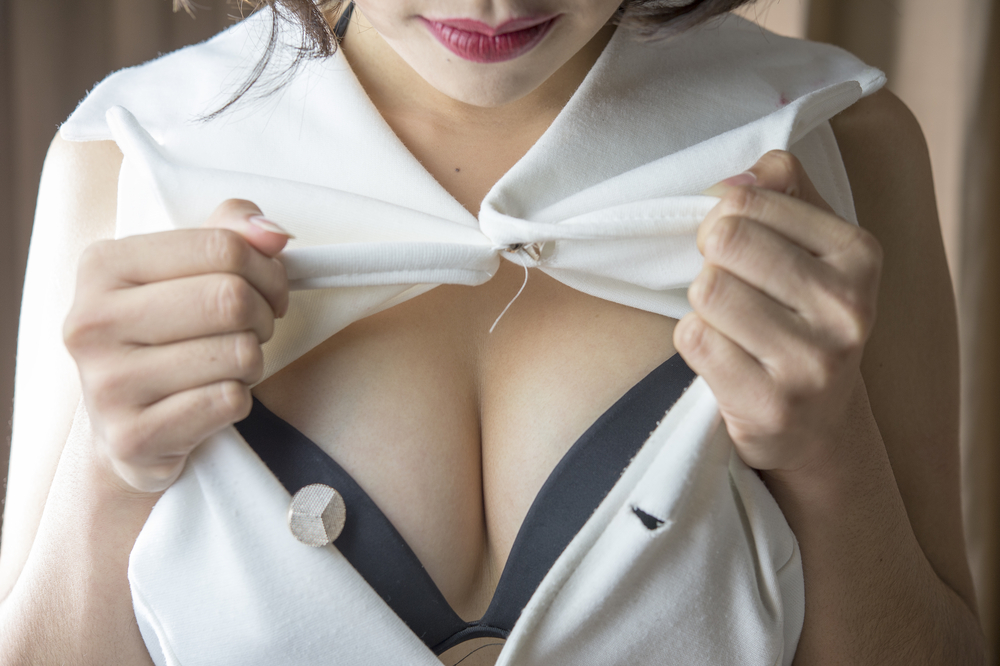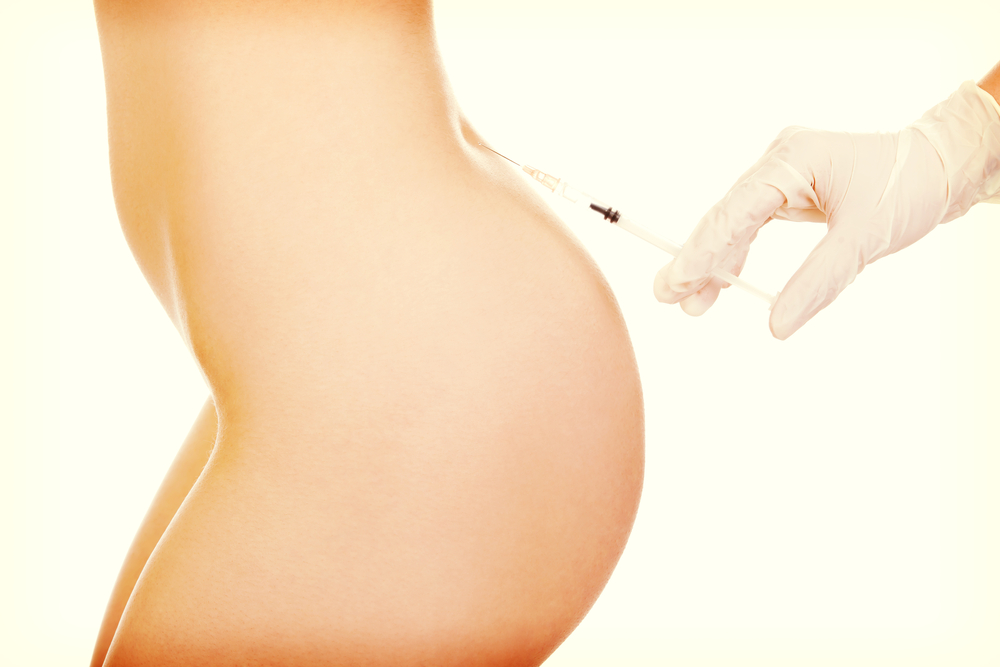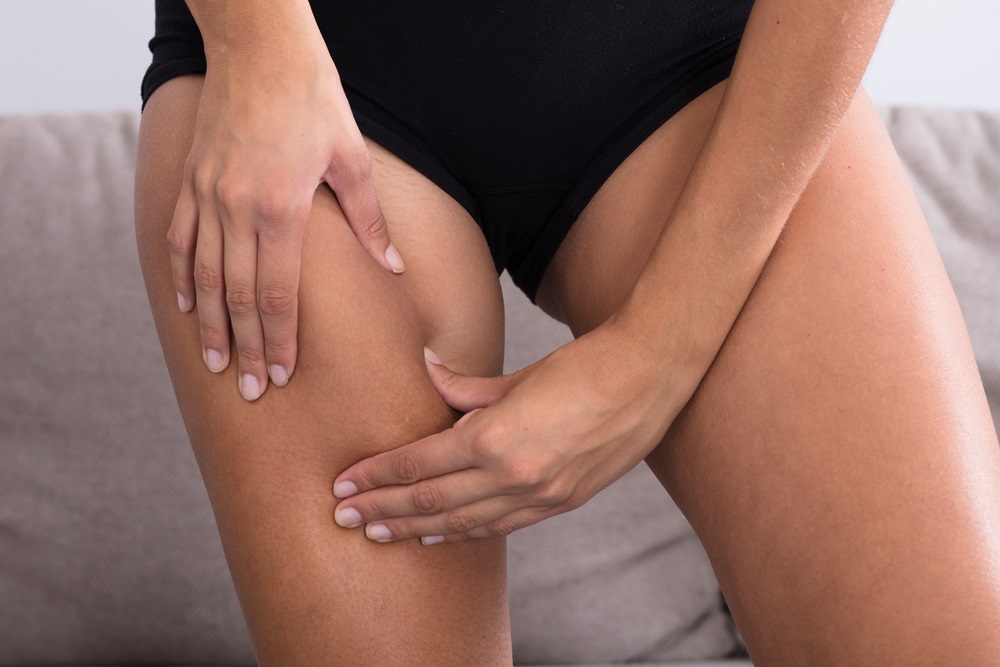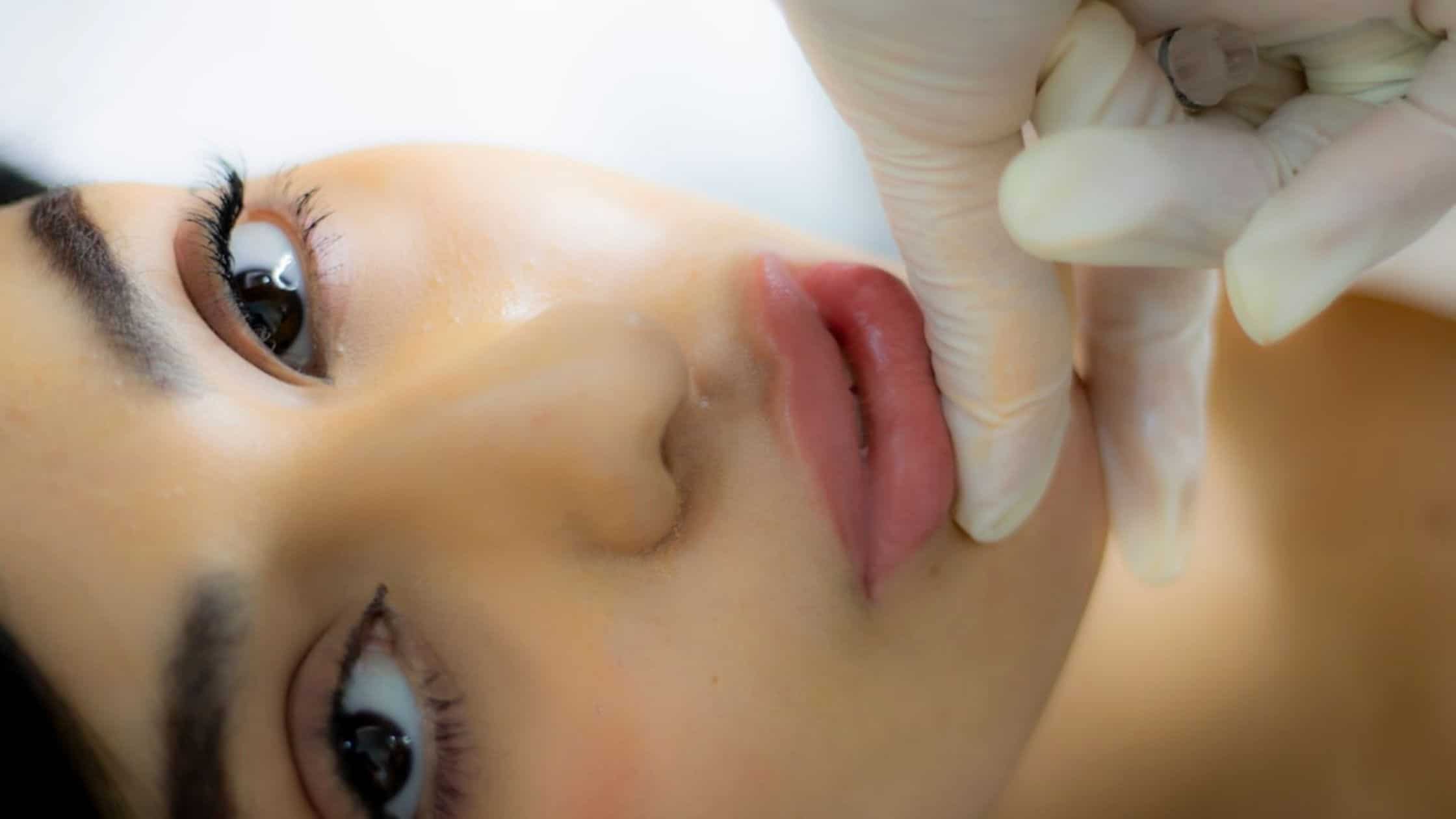- Disproportionately large breasts can lead to physical and emotional distress.
- Diet can be helpful, but targeted weight loss is a myth.
- There are no exercises shown to shrink actual breast tissue.
- Supplements and other ‘natural’ remedies are not proven to reduce breast size.
If you’re unhappy with your breast size, you’re not alone. Studies show that the majority of women are dissatisfied with their breasts. But it’s not always a case of the “bigger is better” mindset. A new study on breast health revealed 31% of the women surveyed wished they had smaller breasts.
Why Some Women May Wish to Decrease the Size of Their Breasts
Although mass media has long promoted the societal ideal of the sex symbol with large breasts, for many women the reality is quite a bit different. Disproportionally large breasts (or macromastia) can lead to considerable physical and emotional suffering, according to the American Society of Plastic Surgeons (ASPS).
There are many ways in which macromastia might impact a woman negatively. Excess breast weight could contribute to debilitating back, neck, and shoulder pain, while physical discomfort can result in an inability to exercise, work, or even socialize. The social stigma of carrying overly large breasts can result in emotional distress.
Plus, it’s often difficult to find clothing that fits or suits a larger-busted woman, thereby adding to an already stressful situation.
What Breasts Are “Made of” and Why Breast Size Fluctuates
Breasts contain a mix of fibrous and fatty tissue that is unique to every woman. There are two main types of tissue in the breast: fibrous (or breast) tissue, which is dense and non-responsive to weight loss, and fatty tissue, which can be variable in its response. But no two breasts are exactly the same—not even your own.
“The ratio of the two types of tissue is highly variable between women, as well as between a woman’s own breasts,” explains Dr. Jeffrey Antimarino, a Pittsburgh-based board-certified plastic surgeon and expert in breast surgery and weight loss.
This is why some women’s breasts don’t change size, regardless of pregnancy, hormone shifts, or weight cycling. Your body’s unique ratio of fibrous-to-fatty breast tissue determines whether your breasts will respond to dietary changes. “The fatty tissue component of a breast is susceptible to weight loss and weight gain — breast tissue is not,” adds Dr. Antimarino.
Exercise: Does It Work to Reduce Breast Size?
Exercise has not been proven to shrink breast tissue. Even workouts that appear to temporarily boost busts don’t impact breast tissue.
It doesn’t matter whether you practice yoga, Pilates, weight training, or cardio—you still cannot impact your non-fatty breast tissue. First, breasts themselves don’t contain muscle. Secondly, although the muscles surrounding your breasts can be toned and the excess fat burned — all of which assist in creating a firmer body and bustline — none of this will reduce the actual breast tissue.
At the end of the day, fibrous breast tissue remains the same in the absence of surgical intervention.
“There’s really no exercise that will change the volume of your breasts unless you’re losing weight simultaneously,” says Dr. Jacob Freiman, a board-certified surgeon based in the Miami area, where he specializes in plastic and reconstructive surgery. “Yoga, supplements, and other natural remedies have not been proven to reduce breast size.”
What About Diet?
Diet plays an important role in your health, but it can’t be counted on to dramatically reduce your breast size on its own. First, you need to actually be overweight to benefit from a healthy weight loss regime.
“It is possible to reduce breast size in women using diet and exercise,” says Dr. Constance M. Chen, a Manhattan-based board-certified plastic surgeon with expertise in the use of natural techniques to optimize medical and cosmetic outcomes for women undergoing breast reconstruction. “In fact, many insurance companies require that a woman have a BMI under 30 before approving breast reduction, this because they want to make sure the problems a woman has with large breasts do not resolve with weight loss.”
Even if you do have extra overall body weight, don’t assume weight loss will magically turn you from a C to an A cup. Not only is the fibrous tissue part of your breasts unaffected by weight loss, there’s no guarantee you’ll lose weight in the fatty area of your breasts.
There’s no such thing as picking and choosing where you lose weight. Despite what the exercise and diet gurus promise, targeted weight loss is a myth. You can’t actually ‘diet off’ breast tissue. Diet can help reduce a woman’s overall weight, but you can’t spot-reduce fat.
“Weight loss can lead to a proportional reduction in overall body size,” elaborates Dr. Chen. “You cannot target and ‘burn away’ breast fat.”
Dr. Antimarino concurs: “A common myth in our culture is that weight loss can be targeted to a specific area. Weight loss and weight gain affects the entire body. Some areas can be affected more than others, but you cannot target weight loss to a specific area.”
So, if you’re already at your ideal body weight, it’s unlikely your breast size will change through diet alone.
Can Natural Supplements, Massage, or So-Called Home Remedies Help?
Despite the energy-boosting and free radical battling properties boasted by proponents of health foods and natural supplements, no food or vitamin has been medically proven to assist in breast size reduction. Furthermore, massage cannot permanently shrink breast tissue. Massage can be a great therapy for stress and pain relief, but there’s zero proof that it can change your body composition.
Some of the confusion regarding massage and breast reduction can be connected to the field of lymphatic massage. In some cases lymphatic drainage — which should only be performed by a licensed, trained, certified, and registered massage therapist — can help reduce excess swelling or lymphedema. But this is a temporary and not always foolproof approach to address excess fluid in the lymphatic system. It has never been scientifically proven that anyone ever massaged away breast tissue. (The same goes for increasing your bust through massage—another myth.)
Dr. Gregory Wiener, a board-certified plastic surgeon based in Chicago, dismisses the purported efficacy of supplements and other ‘natural’ remedies: “Nothing I know of targets breast fat or tissue specifically,” he says. If weight loss isn’t already indicated, he recommends liposuction for “small changes in breast volume” or a surgical breast reduction when “more significant volume reduction is required.”
Dr. Chen also debunks popular claims that dietary supplements can successfully impact breast reduction. “Supplements do not reduce breast size, although certain pills may be appetite suppressants that may cause a person to eat less and thus lose overall weight, including fatty breast tissue,” says Dr. Chen. “The primary ‘natural’ resource to lose weight and subsequently breast size, is diet and exercise.”
That said, Dr. Chen points out that “some women may still have large breasts, even if they are very thin.”
Bottom Line: What’s the Best Way to Reduce Excess Breast Size?
If you’ve tried to reduce your breast size through diet, exercise, and natural supplements but haven’t seen results, don’t blame yourself. Breast size is almost always connected to internal variables like your personal genetics and unique hormonal balance.
Add in life events like pregnancy, childbirth, and the natural process of hormonal fluctuation that comes with aging, and it becomes even harder to create visible and lasting changes in your body composition.
Moreover, although diet and exercise can help reduce breast size, that’s only in certain cases and only to a certain degree. If you’re already overweight and your breast tissue is fattier than it is fibrous, you may see a reduction in breast size through weight loss from a strong and sustained diet and exercise regime.
But there’s no way to guarantee your weight loss specifically zeroes in on a specific body part, let alone your breasts. Any weight loss will be overall, not targeted—no matter what the diet ads promise. And even at an ideal body weight, it’s very common for women to have breasts that feel too large for their frame.
“If a woman has reached her ideal body weight and still feels her breasts are too big and out of proportion for her body, the alternative is breast reduction surgery,” says Dr. Chen.
Breast reduction surgery is an effective, tried and tested procedure, with its own set of pros and cons. See our Complete Guide to Breast Reduction Surgery for more information or to ask a question about this procedure.









